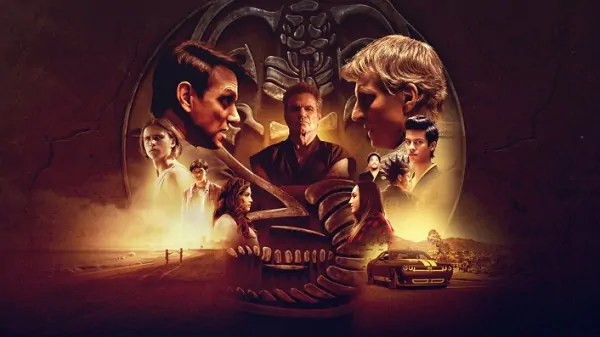
Big Mouth Season Four is now available on Netflix! If you need an explanation about the ending, keep reading! Netflix’s hilarious and gritty animated series about puberty tweens, Big Mouth, has come out with a delightful, self-conscious, intensely realistic, progressive and yet incredibly rude fourth season. The leads, a bunch of horny college kids, are dealing with heavy things this season. But it is not heavy because the series addresses these issues in its characteristic absurd comedy, which brings a lot of lightness to the stories without losing any of its sensitivity.
All in all, season 4 of Big Mouth gives the impression that the series, with its characters, is growing a bit. Less time is spent on unnecessarily torrid escapades and more on elegantly written sequences of self-inspection and reflection. Before continuing, if you want to know everything about the launch of the fifth season, read this. Here’s a recap of Big Mouth season four that includes ten episodes, and also explains the subtleties, nuances, and story arcs of its satisfying ending.
Explanation Of The End Of Big Mouth Season 4
Andrew is dealing with his OCD and a paralyzing fear of death that keeps getting worse. As Nick completely isolates himself from his growing anxiety. Jessi’s parents, upon learning that she has skipped school, bring her back to Bridgeton to live with her father and attend his old school. Jay tells Lola that he loves her, but is deeply hurt when she doesn’t tell him right away. The two men declare a war that can be expected to continue into season five.
On Halloween, all the children participate in a sorority party and individually confront their inner demons. Everyone finds relative peace, except Nick. Whose soul is displaced when his body is taken over by his evil alter ego. With the help and support of his friends, Nick regains his body by embracing all the worst parts of himself and eliminating the evil alter ego. Gratitoad teaches the gang the healing power of gratitude. As Jessi admits, being grateful for the things she has helps greatly reduce her anxiety.
Mental Health
Anxiety and depression play a big role in Big Mouth season four, advancing most of the plot as Tito and Kitty influence children’s actions and decisions. Jessi is not ready for advanced sexual activity, but is forced to accept a handjob after Tito and Kitty tell her that she has to do it to support her boyfriend. Connie disagrees with this plan because Jessi is obviously uncomfortable. The series correctly captures and realistically depicts the spiral that can cause severe anxiety.
Most of our actions stem from the fear of being harshly judged or the fear of being ridiculed. Tito the Mosquito is the perfect embodiment of all these fears that gnaw at the psyche not only of young adolescents, but also of adults. Similarly, Andrew’s obsessive compulsion begins with one little thing, in the form of a particular masturbation ritual. But then the snowballs become a bigger problem. His OCD is so bad that he begins to blame himself for his grandfather’s death.
When Andrew’s parents tell him that death is random and not governed by his masturbation ritual, he develops a debilitating fear of death. Nick is unable to cope with the ugly side of his personality and takes refuge in an impenetrable shell to protect himself from the negative reactions of his friends and family. Big mouth becomes too real and too relatable in its depictions of mental health issues like these.
Racial Identity
Missy gets perhaps the most important and socially relevant setting of Big Mouth season 4. Son of a white mother and a black father. Missy struggles to find the balance between what was and what will be. You don’t know how to embrace your “black side.” But with the help of her cousins and Devon, she is slowly beginning to understand. Her struggle with racial identity is beautifully and respectfully portrayed, and it slowly builds up throughout the season. And culminating in the transition from the voice of Jenny Slate’s character to that of Ayo Edebiri.
It is a sensitive and imperative subject that is treated as such. Devon’s view of “code shifting” provides an unexpected and profound insight into the oppressive culture that forces children of color to change their ways in response to their interlocutors, just to make the people around them feel comfortable. Rather than being themselves, black children must be careful to change their personalities to fit the mold of society and it’s crazy how most people seem to agree with that.






